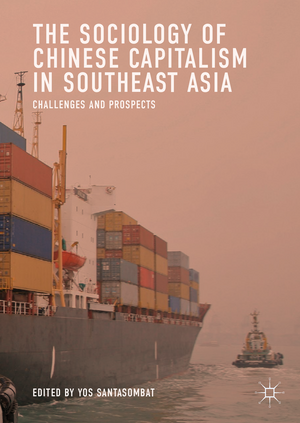The Sociology of Chinese Capitalism in Southeast Asia: Challenges and Prospects
Editat de Yos Santasombaten Limba Engleză Hardback – 20 iul 2018
| Toate formatele și edițiile | Preț | Express |
|---|---|---|
| Paperback (1) | 691.41 lei 6-8 săpt. | |
| Springer Nature Singapore – 23 dec 2018 | 691.41 lei 6-8 săpt. | |
| Hardback (1) | 696.82 lei 6-8 săpt. | |
| Springer Nature Singapore – 20 iul 2018 | 696.82 lei 6-8 săpt. |
Preț: 696.82 lei
Preț vechi: 819.79 lei
-15% Nou
Puncte Express: 1045
Preț estimativ în valută:
133.35€ • 144.80$ • 112.02£
133.35€ • 144.80$ • 112.02£
Carte tipărită la comandă
Livrare economică 22 aprilie-06 mai
Preluare comenzi: 021 569.72.76
Specificații
ISBN-13: 9789811300646
ISBN-10: 981130064X
Pagini: 305
Ilustrații: XVII, 333 p. 28 illus.
Dimensiuni: 148 x 210 x 28 mm
Greutate: 0.57 kg
Ediția:1st ed. 2019
Editura: Springer Nature Singapore
Colecția Palgrave Macmillan
Locul publicării:Singapore, Singapore
ISBN-10: 981130064X
Pagini: 305
Ilustrații: XVII, 333 p. 28 illus.
Dimensiuni: 148 x 210 x 28 mm
Greutate: 0.57 kg
Ediția:1st ed. 2019
Editura: Springer Nature Singapore
Colecția Palgrave Macmillan
Locul publicării:Singapore, Singapore
Cuprins
Introduction.- Chinese Capitalism and the Development of AEC: A Perspective of Desecuritization.- Chinese Capitalism and the ASEAN Economic Community.- The Social Capital of Being Chinese in Thai Politics.- Philippines-China Relations: Interplay Between Domestic politics and Globalization.- Cambodia and ASEAN Economic Community: Golden Opportunity for Ethnic Chinese in Cambodia.- The Rise of China’s Economy and its Impact on Ethnic Chinese Business Community: The Case of Cherry Automobile in Malaysia.- Chinese Capital Going Global: Thai-Chinese Industrial Zones and Labor Conditions in Thailand.- China’s Economic Integration and New Chinese Immigrants in the Mekong Region.- Floating in the course of AEC and the Rise of China: The Case for Myanmar-Chinese SME Businesses.- Chinese migrant traders in Pakse, Champasak Province, Laos: Trajectories and Business Future.- Developing Entrepreneurship and the Rise of China: Chinese Migrant Entrepreneurs in Tourism-related Businesses in Chiang Mai.- Negotiating the Rise and Vice of PRC Transnational Entrepreneurs: Multiple Strategies by Thai Yunnanese SMEs in Chiang Mai.- Chinese Capital and Chinese Cultural Capital: A Case Study of Singkawang, West Kalimantan, Indonesia.
Notă biografică
Dr Yos Santasombat is Professor of Anthropology, Department of Sociology and Anthropology at the Faculty of Social Sciences, Chiang Mai University, Thailand. He is the author of numerous books, including Impact of China’s Rise on the Mekong Region (Palgrave, 2015).
Textul de pe ultima copertă
Set within the context of ASEAN integration, this book considers how Capitalism from China interacts with the ASEAN Economic Community, considering the issue from a variety of sociological, cultural and economic perspectives. It examines some of the creative strategies – de-sinicization, re-sinicization and re-balancing – employed by local Chinese communities and ASEAN countries to cope with the pressures of Chinese capitalism. The book addresses the phenomenon of Chinese ethnic economic migration, particularly the social capital of being Chinese in South East Asia, as well as community building, the interplay between domestic politics and globalization, and the rise of Chinese tourism related entrepreneurship.
Caracteristici
Considers how Capitalism from China interacts with diverse forms of Chinese Capitalism in Southeast Asia Examines strategies employed by local communities to cope with the challenges of Chinese Capitalism Addresses the phenomenon of Chinese ethnic economic migration, particularly the social capital of being Chinese in South East Asia
